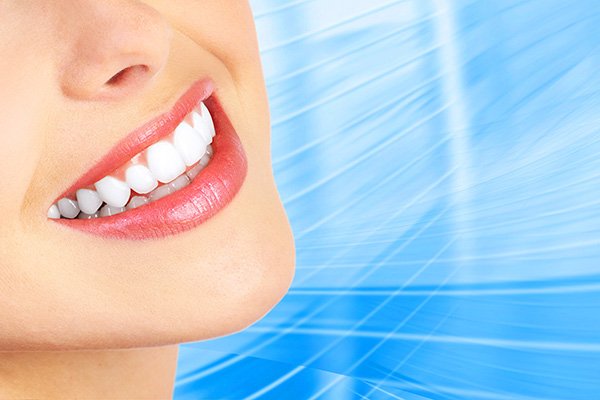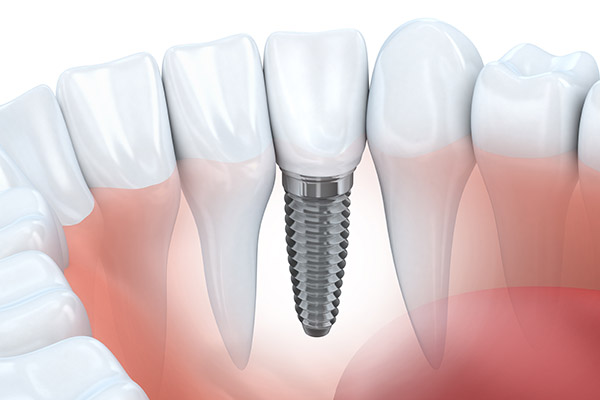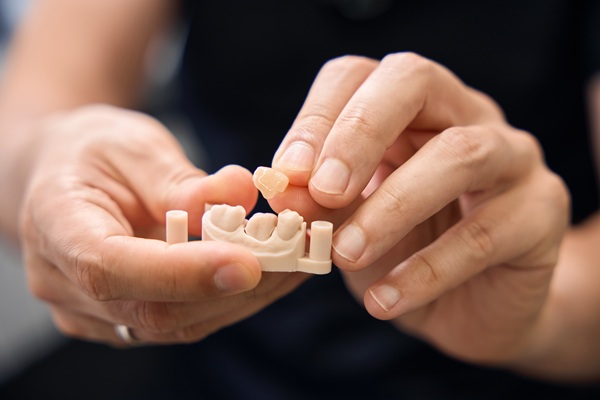Teeth Whitening Options for Gray Teeth

Knowing your options for teeth whitening is important. Few people are naturally blessed with teeth that are truly white, which means getting white teeth may be impossible to achieve through good brushing and flossing habits alone. Many patients who struggle with tooth discoloration may notice that their teeth appear gray or even blue. This can be the result of a number of outside influences or natural causes. Here are a few reasons you might develop gray teeth, as well as the teeth whitening options you have at your disposal.
Causes of gray teeth
It is important to understand that the reasons that teeth might appear gray or blue are numerous, and no two individuals are completely alike. That said, there are a few underlying causes that can contribute to this condition. Here are three common factors that can lead to gray teeth:
1. Natural tooth color
Pigmentation and natural coloring vary among humans and this includes our teeth. Some individuals may simply be born with (or develop) gray teeth, and while this may not be ideal for many individuals, this is not generally a sign of significant health issues.
2. Antibiotics
Children exposed to certain antibiotics at a very early age may develop gray or blue teeth later in life as a result. If antibiotics are the cause of graying teeth, this graying may also be accompanied by striation/horizontal stripes on the surface of the teeth.
3. Dead teeth
While teeth may not be noticeably alive, the center of the tooth holds living pulp and tissue. If a tooth suffers trauma or infection, the pulp and surrounding nerves can decay and die. When a tooth dies, it will often turn grey, blue or even black. Some dead teeth may need to be completely replaced in order to avoid an abscess or to prevent an infection from occurring.
Teeth whitening options
Teeth whitening procedures often work better on yellow or orange teeth but can lighten and brighten the appearance of gray teeth. Your dentist may recommend at-home whitening treatments using strips or trays for less severe graying, or they may propose in-office procedures for more advanced discoloration. When considering options for traditional teeth whitening, your dentist will likely emphasize enamel-safe procedures, as gray teeth will often already have enamel decay, which can cause uneven whitening.
When a tooth has become so gray that traditional tooth whitening procedures will no longer make a difference, your dentist may recommend crowns or veneers to improve your smile. Crowns and veneers can be applied over the tooth, creating a new surface to cover and conceal your discolored teeth, as well as protect them from further damage. In these cases, the damaged enamel may be removed, and your teeth may be reshaped in order to properly apply the veneers. The option for dental veneers is especially good for patients looking for a permanent solution to tooth discoloration.
Let's get started
Request an appointment here: https://atlantapamperedsmiles.com or call Pampered Smiles at (404) 891-9489 for an appointment in our Atlanta office.
Check out what others are saying about our services on Yelp: Read our Yelp reviews.
Recent Posts
Many circumstances might cause you to look into replacing a missing tooth, regardless of your age. Those who do not take care of their teeth and gums are at particularly high risk for tooth loss, as both gum disease and decay can damage gums, tooth roots, and teeth. Cavities can lead to significant damage, as…
Dental crowns are a common restorative solution that protects damaged teeth, improves appearance, and restores proper function. The placement process follows a common step-by-step restoration. Understanding this process can help alleviate any uncertainty you may have before an upcoming appointment and prepare you for what you can expect. Each stage of the dental crown placement…
Implant overdentures may be the best investment when it comes to options for replacing missing teeth. Although you have many options for replacing missing teeth, implant overdentures may be the right option for you. Implant overdentures are known as “snap-on dentures” because the denture connects to the implant via a snap assembly in which a…
Clear braces have become a popular choice for individuals seeking to straighten their teeth while maintaining a discreet appearance. Both adults and teens now have access to innovative orthodontic treatments that focus on comfort, aesthetics, and effectiveness. If you are considering clear braces for yourself or your child, it is essential to understand how these…


